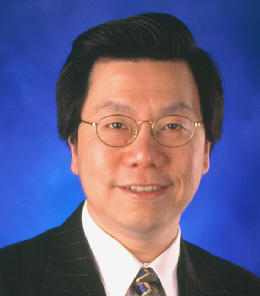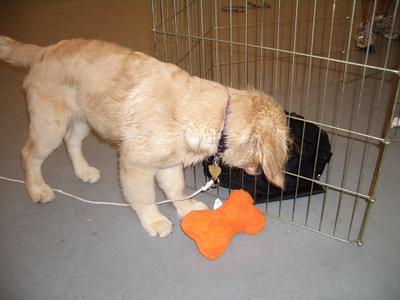Loie's Tale

Pittsburgh has lots of big, impressive buildings. One senses the presence of large dead male egos, the steel barons who built castle-like museums and at least one Cathedral of Learning. Before dessert last night at the Carnegie Museum of Art, I slipped out with WESTAF director Anthony Radich and New Mexico's crack arts commission director, Loie Fecteau. We caught a cab to the Dusquesne Incline, a scary old cable-car ride up a ridge overlooking the wonderfully named Monangahela River. It was a long, steaming walk back to the Hilton, including a pit stop at a train station converted into a bar and restaurant for water, lemonaid, and beer.

Loie is a new member of WESTAF's Multicultural Advisory Committee, but until last night I hadn't known much of her history. Her story kept unfolding in calm little asides, such as "when I was working in Nicaraugua during the time of the Sandinistas" or "the year I fell in love with a ski racer and lived in Aspen." Plus a year in northern England and travels all over. Quite a lifeline for a state bureaucrat who grew up in western Massachusetts. I like her non-monumental energy and the ego-free way with which she is making her way as the top arts official in the crazy state of New Mexico. She is the type of person who comes to a conference like this and leaves lit up with new ideas for projects and initiatives in her work.
Loie once covered a press conference where a Pennsylvania official convicted of bribery shot and killed himself at the podium. After the ensuing trauma, she saw that she had continued taking notes, writing "gun in mouth, blood..." in her reporter's notebook. She has a true journalist's curiosity and ease asking questions. Like all of us ink-stained wretches, she dreamed once of writing the great American novel, but settled for a few short stories and some poems. Meanwhile, a day at a time, year by year, she is living a story well worth telling and remembering.
Saturday, August 20, 2005
Hot Time for the Arts

Pittsburgh is a long way from Ocean Park, Maine. And The Association of American Cultures (TAAC) conference that brought me here is hot and sultry, like the weather inside and out. The air conditioning at the Hilton is broken. I'm sitting here on the 16th floor with the window open, my forearms sticking to the cherry desk as I type. I have to leave in a few minutes for dinner with Anthony Radich, director of the Western States Arts Federation (WESTAF) so we can get caught up on WESTAF work after a month of connecting only by e-mail and phone.
TAAC's 10th conference is titled "20 Years of Celebrating Diversity: The Arts as a Catalyst for Change." You couldn't do better illustrating that fact than listen to
 the story of Donna Brown and the Point Breeze Center in Philadelphia. Her mother started the organization in her kitchen, holding arts classes for kids. When the founder died, the daughter reluctantly stepped in, insisting that "I'll sit here until you can find some artsy fartsy arts person to take this over." That was 20 years ago, and now the Center is way bigger than a kitchen. In the process, the organization has been drawn into work for social change. In addition to learning about art, community members were asking how to get Food Stamps. "One woman was sitting in our lobby one day," Ms. Brown said. When asked why, the woman replied, "I need to sit here because if I go home I'm a gonna kill 'im."
the story of Donna Brown and the Point Breeze Center in Philadelphia. Her mother started the organization in her kitchen, holding arts classes for kids. When the founder died, the daughter reluctantly stepped in, insisting that "I'll sit here until you can find some artsy fartsy arts person to take this over." That was 20 years ago, and now the Center is way bigger than a kitchen. In the process, the organization has been drawn into work for social change. In addition to learning about art, community members were asking how to get Food Stamps. "One woman was sitting in our lobby one day," Ms. Brown said. When asked why, the woman replied, "I need to sit here because if I go home I'm a gonna kill 'im."The center's widely diverse programs help kids find reasons to stay in their neighborhood. "We're giving them choices, opportunities, and chances," Ms. Brown said, "and that's what the arts are all about--choices, opportunities, and chances."
Friday, August 19, 2005
Web Flotsam
The Litblog Co-op, a gang blog of 21 American blogueurs trying to promote quality books missed by the mainstream, inspires a contributor to a French blog to wonder, "A quand la même chose dans la blogosphère francophone?"
I've added this to my "Books to Buy" list--Lord Byron's Novel: The Evening Land by John Crowley, based on an author interview and my own fascination with Byron. First found here.
If Byron was the first rock-star-popular poet, Stephen Vincent Benet was the last one, suggests Frank Wilson, book review editor at The Philadelphia Inquirer "Imagine: A poet delivering radio broadcasts, writing screenplays and radio shows. And a two-time Pulitzer Prize-winner to boot. His books sold well, too."
Someone who lurks on blogs would be...a "blurker"! (Coined by Megan Abbott.)
The Mayor of Washington, D.C., started a blog three days ago. It has one post and, at last count, 32 comments including this one:
I will be curious to see if the deluge of comments sinks this new blog before Hizzoner dares to venture back for his second posting...
I've added this to my "Books to Buy" list--Lord Byron's Novel: The Evening Land by John Crowley, based on an author interview and my own fascination with Byron. First found here.
If Byron was the first rock-star-popular poet, Stephen Vincent Benet was the last one, suggests Frank Wilson, book review editor at The Philadelphia Inquirer "Imagine: A poet delivering radio broadcasts, writing screenplays and radio shows. And a two-time Pulitzer Prize-winner to boot. His books sold well, too."
Someone who lurks on blogs would be...a "blurker"! (Coined by Megan Abbott.)
The Mayor of Washington, D.C., started a blog three days ago. It has one post and, at last count, 32 comments including this one:
Mr. Mayor: I have seen you in the Whole Foods wine section. What is your favorite bottle of wine and where is it produced? Also, speaking of Whole Foods, do you have any idea why they removed their outdoor seating on P Street? Thanks. And welcome to the world of blogs.
I will be curious to see if the deluge of comments sinks this new blog before Hizzoner dares to venture back for his second posting...
Thursday, August 18, 2005
The World According to Claire
 Claire—she is amazing. Alert, spunky, playful and ready to play or sleep at a moment’s notice.
Claire—she is amazing. Alert, spunky, playful and ready to play or sleep at a moment’s notice.Len wants her to experience new things. He says, “Come on, we’re going to take her for a walk.” He grabs her leash, and off we go. I worry, because we haven’t reread the chapter on loose-leash training, and I want to do it “right.” But I also want Len to be involved with Claire, so I give in, and off we go.
“She follows you like a duckling,” Len says with surprise. “Keep walking ahead of us.” And so I do, and from time to time I call her name, and when she comes racing to me I click and give her a treat.
Len is amazed, but I think he is also sad. “She’s your dog,” he says. What he doesn’t say is, “There is no room for me.” That makes me sad. I feel like when I was in high school and I was voted class president, but my older sister was only voted secretary or something. And my younger sister was also voted class president. At first it was great, we were all excited at the honors, but then it shifted. Somehow being class president was different than being just an officer, so the whole thing just wasn’t talked about. I don’t know if this was from my mother or from my head. All I know is that something good became something bad. Wherever it came from, it is still firmly in place. If I have something special, I feel guilty that the other people I love don’t have it, also. That old tape clicked in on our walk, and I could feel my stomach clench into a knot.
After walking and running on grass, pine needles, gravel, tar and cement, Claire even tried climbing some low steps before we returned home.
Claire was tired but very content. We plopped down on the couch to watch a video on raising a puppy the clicker way. Claire snuggled down between us and fell asleep with Len’s hand on her little body. The video was funny and informative. Watching people train puppies makes you realize how we are all bumbling through it with a bit of a plan and lots of patience. Claire loves the clicker. She gradually learned that the sound means a treat, and whenever she hears it she looks up ready for a tasty tidbit.
As we sat on the couch together, I felt so happy. It was one of the 10 best moments of my life! I love Claire, and I love Len. There is such joy in seeing the world through her eyes. She has such delight in life. I love when we are all together, a small family. I love watching Len hold Claire or laugh at her antics. I hope I can stay out of the way, so that they can really get to know each other!
Tuesday, August 16, 2005
In Google We Trust

I just read on a blog that I follow about Kai Fu Lee defecting from Microsoft to head up Google's research labs in China. Lee's formula for Google's success is
youth + freedom + transparency + new model + the general public’s benefit + belief in trust = The Miracle of Google.
This prescription would be a worthless bromide except for the inclusion of "belief in trust," which to me seems original and brilliant.
In an effort to find out why my mother thinks the way she thinks, I am reading a booster biography of George W. Bush titled Misunderestimated. I thought this would be as difficult as it would be for her to read, say, Living History by Hillary Clinton. Instead, I find Bill Sammon's book oddly compelling. I keep reaching for it instead of these other books I brought to Maine that are much more in keeping with my usual interests: Italo Calvino's Invisible Cities, Rohinton Mistry's Family Matters, the latest issue of AGNI, and Robert Aitken's The Morning Star. Maybe I am titillated by the sensation of wandering around the enemy camp in total freedom, watching George Bush say funny and endearing things to reporters on an exhausting hike at his ranch, seeing how terrifying liberals like myself look through the eyes of the other side. I'm messing with my own taboos by even reading this book. It's political pornography--seeing things I'm not supposed to see, namely that the world of Bush and his supporters (including my dear Mom) makes total sense when seen from the inside. It's scary and intellectually arousing.
It strikes me that trust, the key factor in Lee's Google success formula, is also central in understanding the dreary impasse of current American political life. If I trusted George Bush, his affirmations of freedom and making America safe would be totally acceptable, even inspiring. But what if I DID trust him? Well, then the world would become a lot more complicated. I'd have to think about specific choices facing the nation instead of simply finding out what "my" side is promoting out of its supposedly more virtuous, more honest, more trustworthy character. It's a lot easier to eliminate an entire spectrum of ideology--to demonize it, scorn it, and snicker at it. Weirdly, this locked-in ideological stance feels more sane than opening myself to the possibility that two such opposing views of the world could both contain elements of truth.
I heard a story on NPR yesterday about a war zone somewhere--I forget where, there are so many places in the world where people are killing each other over ideas and ideology. A weary but hopeful person in the radio report was describing progress toward peace but noted there were forces benefitting from the conflict, getting rich selling arms. Likewise, there are people getting rich fanning the ideological mistrust in this country--from Limbaugh to Al Franken, as well as high-paid political operatives in each party. Trust? If you were one of those guys, you'd stomp on it every time it raised its furry little head from the prairie.
I'd like to believe that trust wins in the end. Kai Fu Lee trusted his own heart enough to make a bold move in his life, returning to his own country as part of a company that he thinks has trustworthiness as a competitive advantage. I trusted my own mother enough to read a book that is arousing my mind to a new world. Somewhere out there, I can see an America that trusts itself again, a country made up of citizens who increasingly trust each other. It will also be driven by youth, freedom, new models and the public good. What will we call it? The Miracle of America.
Monday, August 15, 2005
Soul Treats

Darlene and I took Claire to a her first puppy play group yesterday at My Wonderful Dog in Portland. Elsa Larsen, the no-nonsense trainer, quickly decided to isolate our two-pound miniature Yorkie in a protective cage which was visited by (in photo above) a curious golden retriever named Logan. The room was a riot of chasing and tumbling and mouthing, all swirling around Claire, who spent most of her socialization time looking out of her black bag inside the cage. "This is good, this
 is good," Elsa kept saying, "she is getting used to being around other dogs." For the record, her first dog friends were, in addition to Logan: Zena, a schnoodle; Milo, a cockapoo; Jackie, a Jack Russell terrier; Alexi, a German shepherd, and Mattie, a miniature Australian shepherd.
is good," Elsa kept saying, "she is getting used to being around other dogs." For the record, her first dog friends were, in addition to Logan: Zena, a schnoodle; Milo, a cockapoo; Jackie, a Jack Russell terrier; Alexi, a German shepherd, and Mattie, a miniature Australian shepherd.We returned after lunch for a training class, in which Elsa displayed wizard-like skills with the puppies. Using delicious pieces of chicken as rewards, she taught Mattie how to go in and out of a crate on command. She would sit and look up at Elsa, trying all her repertoire to get the treat--sitting, lying down, and--oh, yeah, I get it!--walking into the crate. In church this morning listening to the Rev. Peter Gomes, Harvard's preacher who each year gives a guest sermon at Ocean Park, I had the image of us humans sitting and looking up trying to figure out what we are called to do next, to get a spiritual treat, that sense of rightness that descends from time to time when the soul has learned a new trick.
In spiritual training as in dog training, the emphasis these days has thankfully turned away from fire and brimstone. Elsa is part of the positive reinforcement school of trainers, but not everyone has gotten the word about how punitive corrections can make a dog defensive. "I had one couple whose vet had told them, 'If the puppy bites you, bite them back,'" she told us. "So the husband was biting the puppy. It would have been funny, except now the puppy is terrified of the husband."
